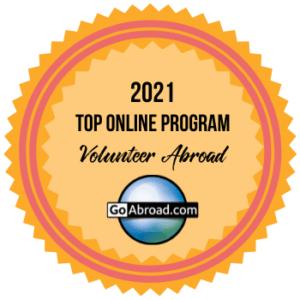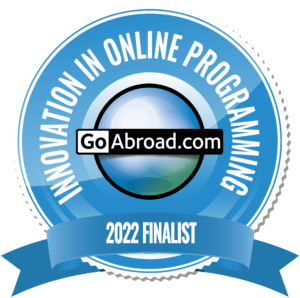Marine Experience Rhino Experience Vet Experience
Register here | Prep here
Your experience includes
Selecting only a few students per two weeks, the Dyer Island Marine Experience will bring elements of the Wildlife Conservation in South Africa course to life with a combination of penguin rehabilitation, marine protection, shark research, plus marine veterinary exposure on demand. The experience includes the following highlights…






Inspiring marine and coastal conservation
Heart-warming penguin sanctuary support
Rare and groundbreaking shark research
Credible biologists, researchers and vets
24-hour support crew
Professional airport pick up and drop off
Complementing activities and conservation topics
And fantastic cottage accommodation
Have you been searching for an entry point into marine and coastal conservation, wildlife rehabilitation, and marine veterinary medicine to gain in-person practical experience? If yes, you may be restricted by the cost or quality of the options out there. For this reason, we’ve designed a package just for vets and marine biologists in training that is both affordable and of high quality. It’s built around our principles of collaboration, credibility, and accessibility by connecting communities and exceptional projects and experts.
Enquire for dates.
Sunday arrival at Cape Town Airport for early Monday morning collection (we will assist with overnight accommodation and collection times from Cape Town city centre).
Starting at £70 GBP / $100 USD / *R1455 ZAR (subject to change) per day (2 weeks minimum)
*Rate based on required South African Rand and therefore international currencies subject to change.
Penguin Sanctuary
Focus – Penguin Rehabilitation (and Veterinary Medicine on request)
Project – Dyer Island Conservation Trust
Summary – African penguin conservation includes a nest project providing critical protection to the penguins during their fledgling stage. South Africa’s endemic penguin species would normally burrow into their mass deposits of guano but sadly, this was stripped by man over many decades and used for agricultural fertilizer.
The Trust participate in all top-level conversations related to the African Penguin Biodiversity Management Plan – this includes the habitat working group and oil disaster strategy planning. APSS is visited by at least 20 000 people every year who observe feeding time on a screen without disturbing the birds in our care.
In 2015 the Trust opened its own rehabilitation facility in Gansbaai – the African Penguin and Seabird Sanctuary, known as APSS. With a fully equipped lab and a vet on standby, injured, oiled or ill birds can immediately be treated thereby increasing their survival rate. Penguins are released on or close to their home colony of Dyer Island.
Shark Research
Focus – Marine Biology
Project – Dyer Island Conservation Trust
Summary – African penguin conservation includes a nest project providing critical protection to the penguins during their fledgling stage. South Africa’s endemic penguin species would normally burrow into their mass deposits of guano but sadly, this was stripped by man over many decades and used for agricultural fertilizer.
Studies include tagging and tracking, behavioural surveys, wound healing, environmental parameter monitoring, and daily observational data – fin identification for population studies helps assess this vulnerable species. Our senior shark biologist, Alison Towner, is part of the White Shark Research Group in South Africa. DICT are the only group tagging and tracking great white sharks in Gansbaai and have an array of acoustic receivers in the Bay.
Scientific Skills (On Request)
Focus – Marine Biology and Ocean Conservation
Project – Dyer Island Conservation Trust
Summary – A series of exclusive, high-level academic and field-based skills training modules for marine science undergraduates and recent graduates. It’s open to all students in the natural science, and biology fields. Between ecological studies and the utilization of upcoming technologies, our emphasis is on providing students with experiences that will help further them along their chosen career paths. We are affiliated with various Universities worldwide.



We are in a low-risk Malaria area – coastal Western Cape, South Africa. We advise participants to consult with their doctor for any vaccinations or about the use of malaria tablets before their travels to South Africa.
Find out more about the Gansbaai area here.
Consult our Terms and Conditions here and also refer to Government advice and regulations around COVID (South Africa here and the UK here) and prepare your Declaration for Travel if required.
The best way to prepare for this experience is to take our Marine Dynamics / Wildlife Conservation in South Africa course and read about our partners.
Dates
Enquire for availability.
Arrival
Monday arrival at Cape Town Airport where you will be collected by our team (please arrive by 10:00pm on your arrival day in order to meet our transfer time).
Costs
Starting at £70 GBP / $100 USD / *R1455 ZAR (subject to change) per day (2 weeks minimum)
*Rate based on required South African Rand and therefore international currencies subject to change.

Contact us for details and help coordinating flight arrivals and departures.




